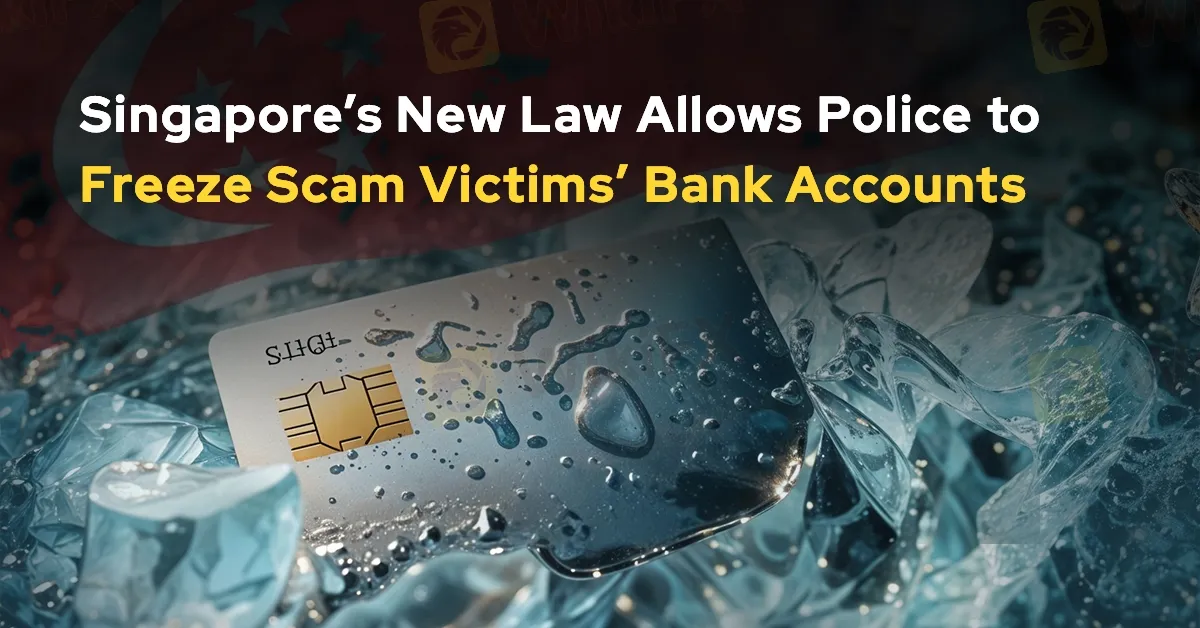简体中文
繁體中文
English
Pусский
日本語
ภาษาไทย
Tiếng Việt
Bahasa Indonesia
Español
हिन्दी
Filippiiniläinen
Français
Deutsch
Português
Türkçe
한국어
العربية
Singapore’s New Law Allows Police to Freeze Scam Victims’ Bank Accounts
abstrak:Singapore has enacted a new law enabling police to freeze bank accounts of scam victims as a last-resort measure to prevent financial losses.

Singapore has enacted a new law enabling police to freeze bank accounts of scam victims as a last-resort measure to prevent financial losses. The legislation empowers authorities to issue restriction orders to banks when they determine that a victim is at risk of transferring money to scammers, withdrawing funds for fraudulent purposes, or applying for loans to benefit fraudsters.
Scams have become a significant concern for the city-state, which is known for its status as a wealthy financial hub. In the first half of 2024, there were 26,587 recorded scam cases, resulting in losses of S$385.6 million (US$283.34 million or RM1.27 billion), according to police data. In 2023, victims lost S$651.8 million, while 2022 saw a record loss of S$660.7 million.
Restriction orders, which last for an initial period of 30 days, are designed to act swiftly to protect victims. Police can extend these orders up to five times or lift them earlier if deemed appropriate. Authorities will assess factors such as whether the victim has already transferred funds to scammers or remains in communication with them.

By default, these restriction orders will apply to Singapores seven major retail banks: OCBC, DBS, UOB, Maybank, Standard Chartered, Citibank, and HSBC. However, other financial institutions may also be included if necessary.
Sun Xueling, the Minister of State for Home Affairs, emphasised the importance of acting promptly to minimise losses. She stated that restriction orders should be imposed or lifted within hours, not days, to protect victims effectively. Sun also highlighted that in many cases, victims life savings could be at stake.
While the law aims to protect individuals, authorities have clarified that the responsibility cannot rest with them indefinitely. If a victim continues to engage with scammers after the maximum restriction order period, they must ultimately bear the consequences of their decisions.
The Ministry of Home Affairs has indicated plans to adapt the measure as needed. Officials are considering extending the scope of restriction orders to cover cryptocurrency exchanges, remittance services, and e-wallet providers.

Disclaimer:
Ang mga pananaw sa artikulong ito ay kumakatawan lamang sa mga personal na pananaw ng may-akda at hindi bumubuo ng payo sa pamumuhunan para sa platform na ito. Ang platform na ito ay hindi ginagarantiyahan ang kawastuhan, pagkakumpleto at pagiging maagap na impormasyon ng artikulo, o mananagot din para sa anumang pagkawala na sanhi ng paggamit o pag-asa ng impormasyon ng artikulo.
Broker ng WikiFX
Exchange Rate






